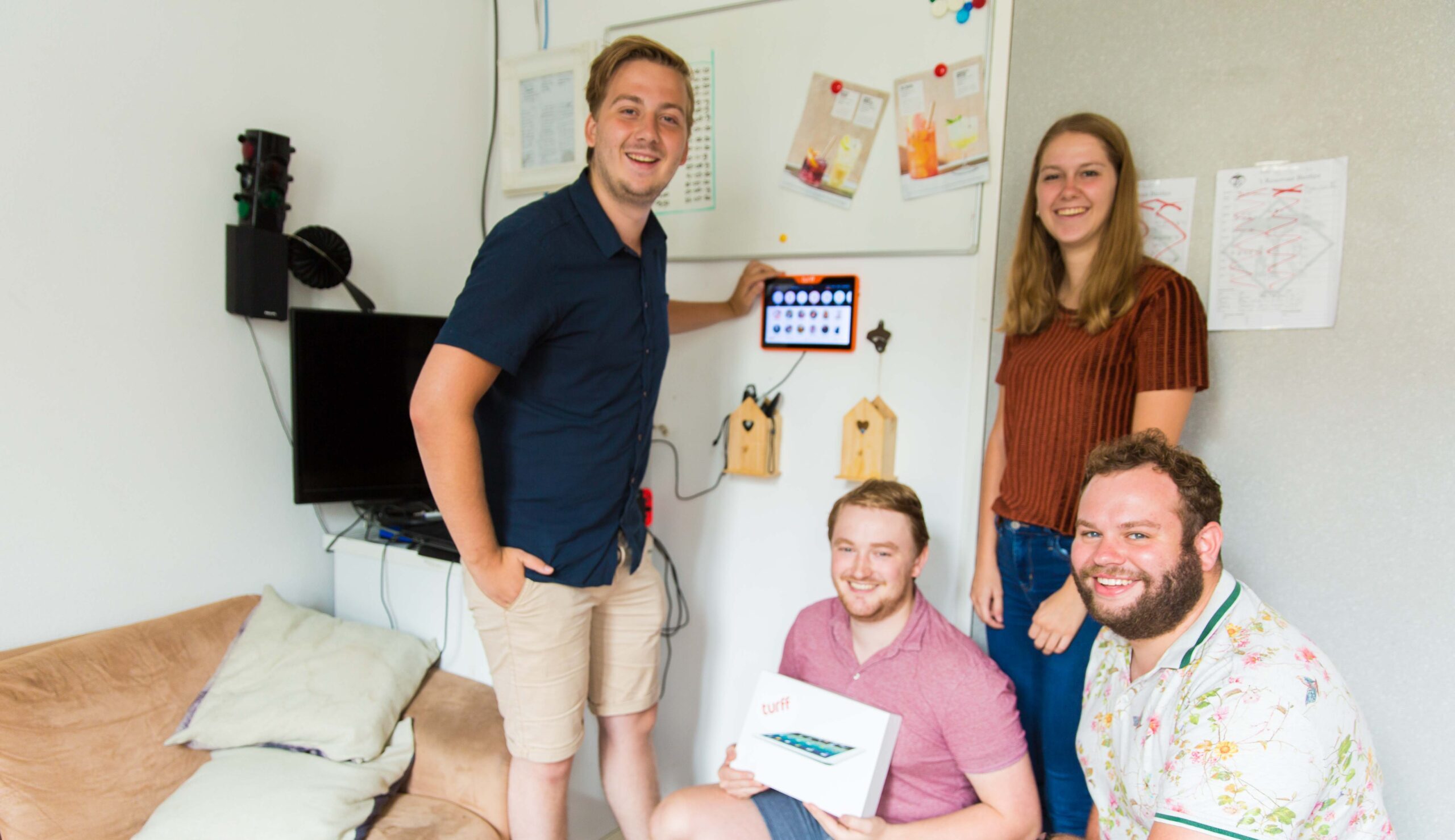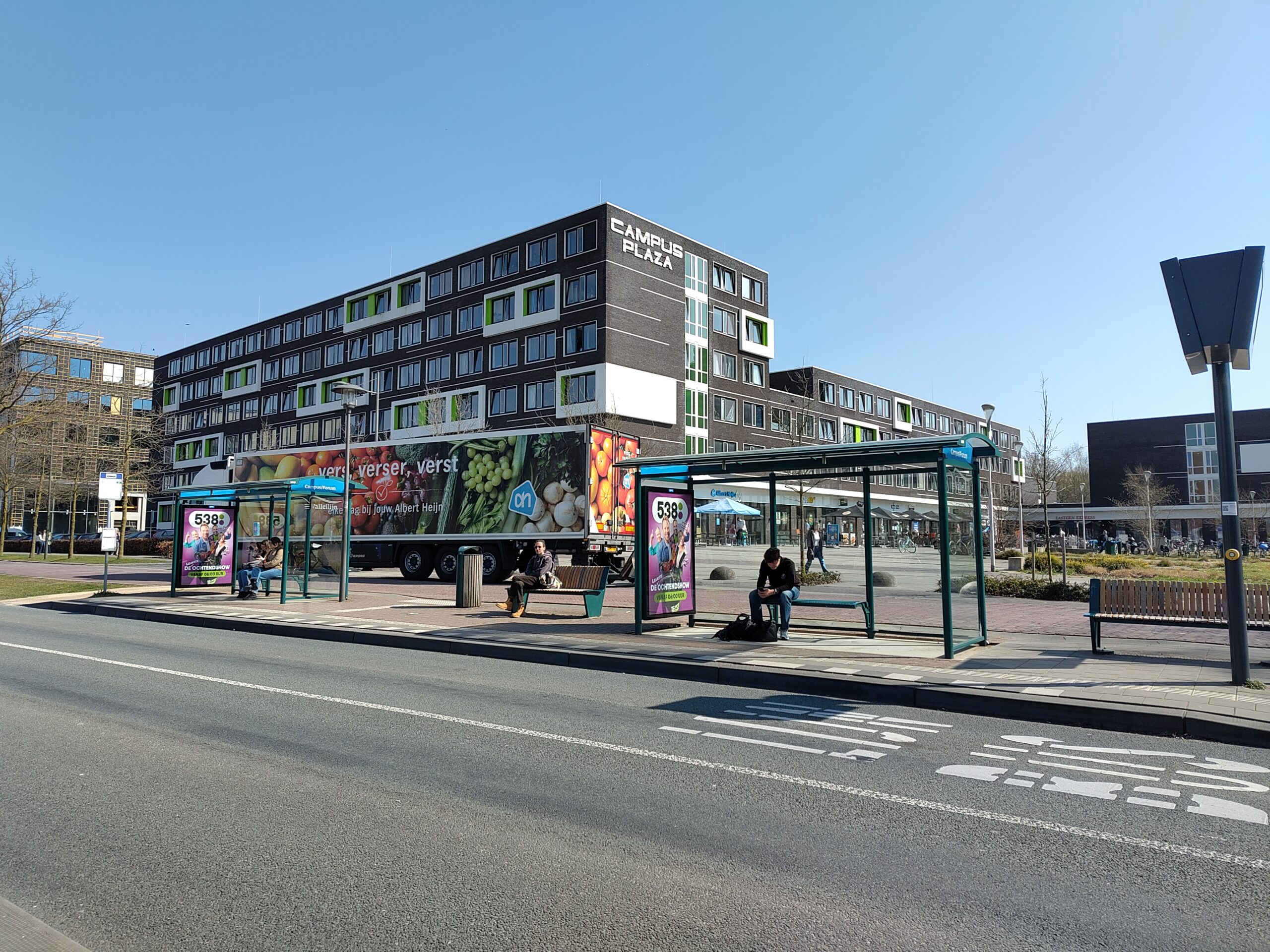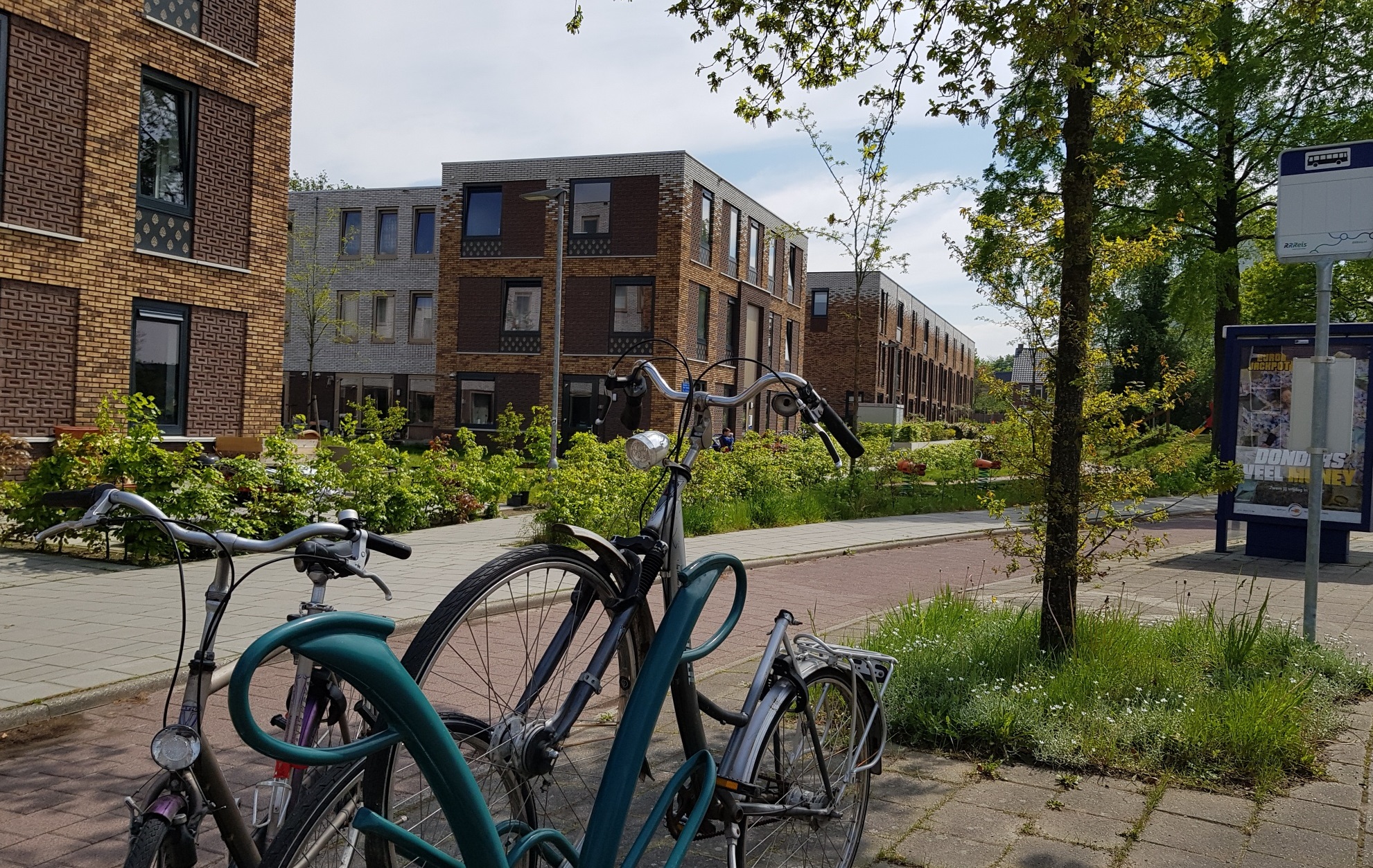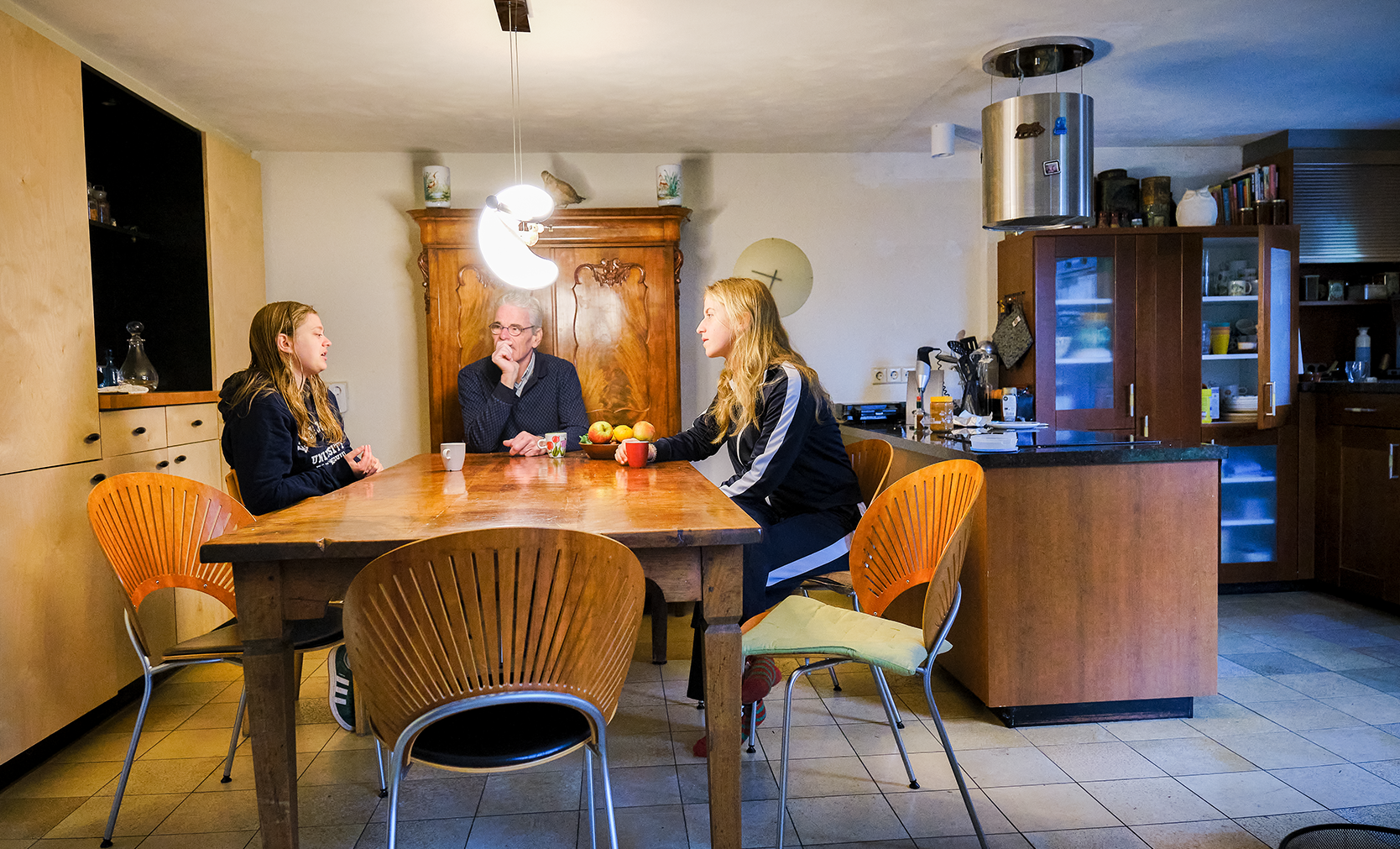A smart student from Delft University has come up with a tablet that can replace tally sheets. The tablet is free but you have to put up with adverts.
Text: Anna den Hartog
For the past two weeks, an orange tablet has graced the living room wall at ’t Reservaat, a student house in Wageningen, where Bas lives with three housemates. The tablet casts light across the room. On the screen: ‘Find A Job Today Start Working Tomorrow – YouBahn’.
This is the Turff, a product dreamt up by Henry Tang, a 23-year-old student of Technical Physics at the University of Delft. The tablet, which students get free, comes with the Turff app designed as a digital alternative to the tally sheets typically kept in student houses. Each person can record on the tablet what they eat and drink from the communal stock in the house, and then calculate what everyone has to pay.
We actually like the commercials
Bas, resident of student house ‘t Reservaat
The gadget isn’t finished: Tang and his team are working on an algorithm that predicts when it is time to replenish stocks, and on a way of sending that information to online suppliers.
Useful
The Turff tablet can be provided free because the screensaver shows adverts targeting students. This way, the advertisers reach students in their homes. Bas has no problem with that: ‘We actually quite like the ads, but that is probably because we’ve only just got the Turff.’ And the ads are specifically geared to students, so they really can be useful, he thinks.

Privacy
Targeted advertising of this kind is not new, but the Turff brings it right into people’s living rooms. When you use the Turff, you have no choice about whether you see adverts. That makes it quite different to TV adverts or folders put through the letterbox. The residents of ’t Reservaat crack jokes about it: sitting on your sofa in a drunken stupor, you are probably more easily influenced.
Tang: ‘We don’t penetrate that far into students’ lives. We don’t target individual people or houses, but we do target cities. Students in Wageningen could get different ads to students in Utrecht. We don’t share individual tally lists, and if we ever start doing that in combination with online suppliers, we will explicitly ask permission first.’
In the interests of privacy, the tablet’s camera and microphone are switched off too.
Intuitive
Tang and his team have drawn up guidelines that advertisements have to stick to, and the adverts are monitored. Tang: ‘Our approach is rather intuitive. If I wouldn’t want an advert in my own home, we don’t accept it. We are students too, so we have quite a good sense of what students want. And we are also in close touch with the users.’
The residents of ’t Reservaat admit they don’t know exactly what the tablet does with their data. Bas: ‘As long as it is used positively, for linking to special offers or in future to webshops, I don’t mind. It is a handy gadget and it gives us a good overview. We find it really useful.’

 A smart student from Delft University has come up with a tablet that can replace tally sheets.
A smart student from Delft University has come up with a tablet that can replace tally sheets. 

